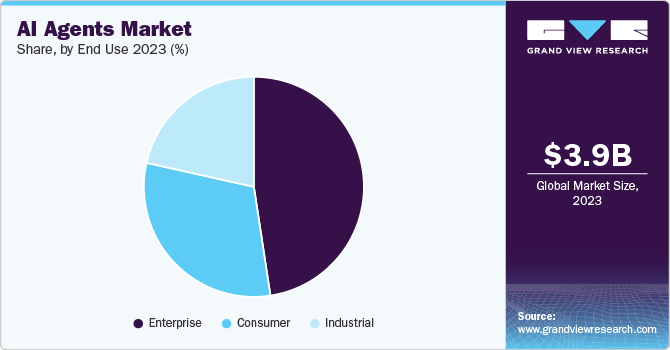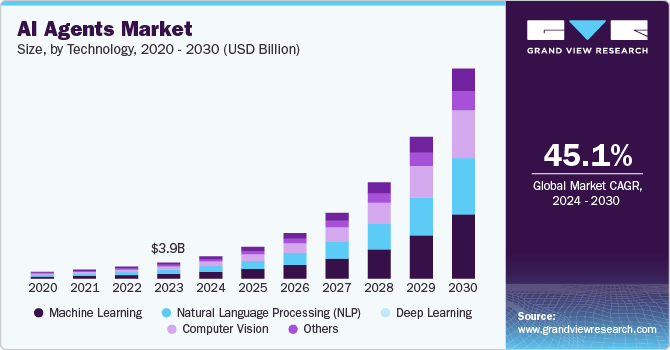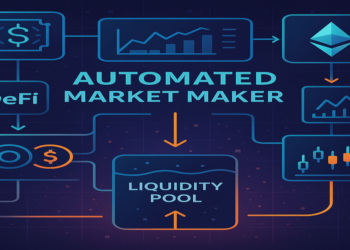By 2025, 37% of customers will use a virtual assistant for customer service. This statistic highlights the rising importance of AI agents in our lives. AI agents are software programs that operate independently, similar to how robots function. When paired with blockchain technology, these agents gain a secure platform, ensuring their operations are reliable and trustworthy. This combination is not just a passing trend, it is a significant change in how businesses operate.
| What You Need to Know |
|---|
| AI agents can work independently without constant human input. |
| Blockchain technology offers a secure ledger for transactions. |
| The combination improves data integrity and operational efficiency. |
| AI agents are used in various sectors like healthcare and finance. |
Understanding AI Agents
AI agents are sophisticated software that perform tasks by observing their surroundings. They respond to situations and take action to achieve specific goals. For example, think of a virtual assistant that helps schedule appointments or answers questions. These agents can manage multiple interactions at once, making them efficient in customer service. They are like digital Swiss Army knives, ready to handle a variety of tasks smoothly.
AI agents work through three main stages: setting goals, reasoning with the information they collect, and learning from feedback. This process allows them to adapt and improve over time.
AI Agent Usage

Core Components of AI Agents
AI agents have three core components: perception, reasoning, and action. Perception enables them to gather information from their environment, reasoning allows them to analyze that information, and action lets them perform tasks. This setup helps AI agents work efficiently and independently. They operate like a well-oiled machine, functioning together to meet their objectives.
Integrating blockchain technology enhances the security and reliability of AI agents. Blockchain provides a clear and secure method for recording transactions, which is vital for keeping the data AI agents manage trustworthy.
Types of AI Agents
AI agents can be classified into five main types based on their capabilities: Simple Reflex Agents, Model-Based Reflex Agents, Goal-Based Agents, Utility-Based Agents, and Learning Agents. Simple Reflex Agents react to specific stimuli while Learning Agents adapt based on their experiences. Each type serves different purposes, making them suitable for various applications. Think of them as different tools in a toolbox, each made for a unique job.
Recognizing these differences helps in choosing the right AI agent for specific tasks or industries.
Benefits of AI Agents
AI agents provide various benefits, including the automation of complex tasks, which can boost productivity and lower operational costs. By offering 24/7 automated service, they guarantee quicker and more consistent responses to customer inquiries. This not only enhances compliance but also improves customer satisfaction. They are the unsung heroes behind the scenes, constantly working to improve the customer experience.
With AI agents managing routine tasks, human agents can concentrate on more complicated issues. This division of labor increases organizational efficiency.
Blockchain Technology: An Overview
Blockchain is a shared, unchangeable ledger that allows real-time, transparent exchanges of encrypted data. This technology builds trust in transactions by providing a secure platform for recording and sharing information. Its uses go beyond cryptocurrency, influencing different sectors by increasing efficiency and security. It acts as the backbone that supports digital trust and validation.
Understanding blockchain is essential for grasping how AI agents can operate securely. It establishes a dependable environment where AI can analyze data and execute tasks without compromising security.
Integration of AI Agents and Blockchain
The merger of AI and blockchain creates new business value by enhancing authenticity, augmentation, and automation. This integration can significantly strengthen cybersecurity and streamline operations, making processes quicker than human capabilities alone. It’s like combining two powerful forces to create an unstoppable wave of innovation.
As more companies embrace this integration, various industries are transforming.
Challenges in Implementing AI Agents with Blockchain
While integrating AI agents and blockchain has many benefits, challenges persist. Data privacy and ethical issues, especially concerning bias, present significant obstacles. Furthermore, implementing these technologies can be technically complex and resource-heavy. Like navigating a minefield, organizations must proceed with caution to avoid potential risks.
To tackle these challenges, effective regulatory frameworks need to be put in place.
Future Trends in AI Agents and Blockchain

The future of AI agents and blockchain technology looks bright, with predictions of the integration becoming a billion-dollar industry in the next decade. Advancements in reinforcement learning and greater integration with the Internet of Things (IoT) will drive this progress, alongside a focus on ethical AI practices. These developments will shape how businesses function and interact with customers, making it essential to keep informed.
Best Practices for Implementing AI Agents in Blockchain
To ensure the effective integration of AI agents in blockchain, several best practices should be followed. This includes keeping activity logs for transparency and allowing human intervention when necessary. These measures boost accountability and improve the adaptability of AI agents. Moreover, requiring human approval for critical actions can enhance security.
Conclusion: The Transformative Potential of AI Agents in Blockchain
The integration of AI and blockchain technologies is set to revolutionize industries, with a projected market size exceeding $703 million by 2025. This growth will be driven by the efficiency and innovation these technologies bring to business operations. As organizations continue to adopt AI agents within blockchain frameworks, significant advancements in how they operate and serve customers can be expected.
FAQ Section
-
What are AI agents and how do they differ from traditional AI?
AI agents are designed to perform tasks independently, while traditional AI often requires human input for operation.
-
How does blockchain technology enhance the capabilities of AI agents?
Blockchain provides a secure platform for AI agents, ensuring data integrity and trust in transactions.
-
What are the main challenges in implementing AI agents with blockchain?
Challenges include data privacy concerns, ethical issues, technical complexities, and the need for significant computing resources.
-
Can AI agents improve the scalability of blockchain networks?
Yes, AI agents can analyze data rapidly, helping to streamline processes and improve scalability.
-
How are AI agents and blockchain changing industries like finance and healthcare?
These technologies enhance efficiency, security, and decision-making in various sectors, leading to better outcomes.















